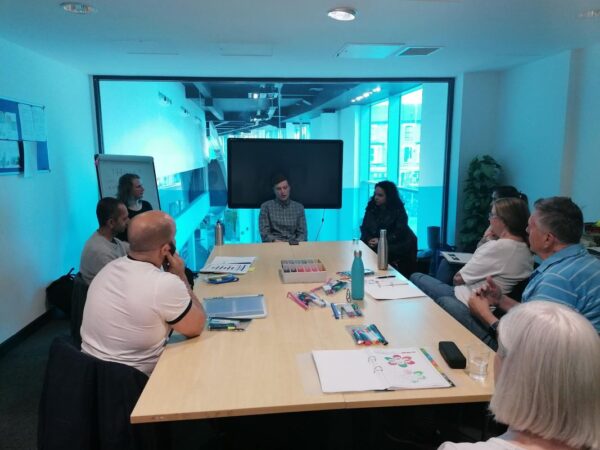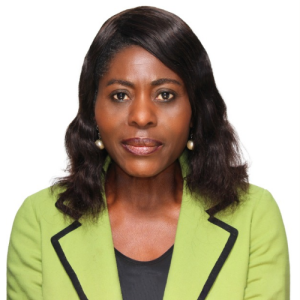“It’s an opportunity to rewrite the future”
We find out how Hammersmith & Fulham Council’s Covid-19 emergency response has relied on partnership working and the creativity of the third sector.
“I can remember when we saw the first deaths in a residential home. That was a particularly low moment. It was traumatic for everyone – a terrible tragedy,” says Linda Jackson, director of Covid-19 Response and Recovery for Hammersmith & Fulham Council. “Now everyone has been touched by this crisis, one way or another. It’s been really difficult, seeing the devastating impact on families and businesses.”
The crisis over the past year has brought together everyone living and working in the community like never before, Linda says. “There has been an extraordinary partnership response between the council, fire, police, NHS, businesses, community organisations, residents – with camaraderie at every level.”
Early days of the pandemic
After recording the very first case on 22 January 2020, the council could see what was coming on the horizon and knew it needed to act quickly, Linda says. By the beginning of March, a structure was put in place to get some control and respond quickly. The team has always tried to be intelligence-led in its response, she says, and closely monitored how the pandemic was progressing in Hammersmith, London, the UK and the world.
It became clear in March 2020 that hospitals were discharging residents into care homes without first testing them for Covid-19. With an absence of national guidance or support, the council team forged ahead, linking up closely with health partners to close the homes to new admissions and test everyone to bring the virus under control. And in November, Hammersmith & Fulham became the first borough in London to launch lateral flow testing initially at residential care homes and then at three fixed centres making tests much more widely available. The council has also been facilitating the NHS-run vaccination programme, helping to set up centres and supporting GPs with systems and process.
For organisations providing sheltered housing with high numbers of older people, the speedy roll-out of these programmes has been game-changing. “With both testing and vaccinations, I always felt that the council was doing its best to bring any single benefit to the community as quickly as it could,” says Victoria Hill, chief executive of Hammersmith United Charities, which provides almshouse accommodation for older people on lower incomes.
“When we started being able to test our staff on site in December, it was a really big deal. It became a huge part of our infection control process,” says Victoria. “Before that, we were constantly worried that we could be infectious without knowing it and bring the virus on site.”
“All of our over-80s were vaccinated before Christmas, followed by staff in January. Now nearly everyone is vaccinated. It is such an incredible relief. Every single health and social care worker in the world has been weighing this up, every day, for a year: am I going to bring coronavirus into work? Am I going to take it back home with me?”
Working with the third sector
The council and the NHS are pushing out vaccines and testing to every corner of the borough with the help of the voluntary sector, Linda acknowledges. These organisations have a unique ability to wrap quickly around the thousands of people in the borough whose lives have been turned upside down by coronavirus.
“There is a quite breath-taking amount of skills and abilities in the local third sector,” says Linda. “These organisations move silently within communities and activate community capacity a lot quicker and better than a council officer could.”
Over the past year, the council and grassroots organisations have worked together to provide support where it’s been needed most. Early on the Volunteer Community Aid Network (CAN), along with street-level mutual aid groups, galvanised hundreds of people to volunteer their time to help vulnerable people. There has also been a 150% growth in donations to the food bank in the borough to support the surge in families who now can’t afford to put food on the table. “Some of the people using food banks were looking forward to a holiday a few years ago. Now they have no income and no money,” says Linda.
In partnership with fundraising organisation United in Hammersmith & Fulham, the council set up the Covid Appeal in March 2020, and local businesses and residents have now donated over £144,000 to fund organisations supporting people affected by the pandemic.
Community organisations are powerful because they have an intimate, inside-out understanding of the borough, says Victoria. “Hammersmith United Charities also provides grants to local organisations, and when I look at the organisations we’ve funded throughout this crisis, I see a strong movement of charities run by people who live here. They know the people most in need personally and over the crisis have worked together at speed to provide whatever is needed – whether it’s food, laptops, phone data, toilet paper, or a cheering phone call.”
“Throughout the pandemic, community organisations have stepped up very quickly, without thought to their previous agenda or outside pressures like funders’ targets. They just changed what they usually did to meet the immediate need, because their first priority was getting their community through this crisis. I hope funders now have a better understanding that it’s crucial to trust community organisations and give them the flexibility to respond to needs as they see them changing.”
Green shoots
So what does recovery in Hammersmith and Fulham look like? “I can see the green shoots of spring,” says Linda. “We’ve launched our ‘Shop Local, Shop Safe’ campaign to help businesses open safely as lockdown is eased. And we’ve got to build on the connections we’ve made with the third sector. After 12 months of working really hard together, how do we keep the capacity we’ve gained? We want to develop the recovery plan in co-production with the third sector, so that it’s an integral part of what the council offers, rather than working around the outside.”
The pandemic has shifted health and social care priorities. “Before, the focus was on specific diseases, like diabetes and cancer. Now? It’s on basic needs like food, employment, housing,” says Linda. “Some say it’s a backwards step. I say it’s an opportunity to rewrite the future. But we absolutely need the community sector to write it with us.”
Find out more
- Find out more about coronavirus, latest guidelines, testing and vaccinations in Hammersmith and Fulham on the council’s website
- Read more about Hammersmith United Charities’s grants programme and other community projects
- Find out about our sheltered housing in Hammersmith with beautiful award-winning gardens.
- Linda and her team are reaching out to the community to understand why people may be hesitant to have the COVID-19 vaccine and put support measures in place to improve vaccine take up in the borough. If you would like to contribute your views please join their online meetings held on Tuesdays at 6pm – 7pm which can be accessed via Microsoft Teams using this link.


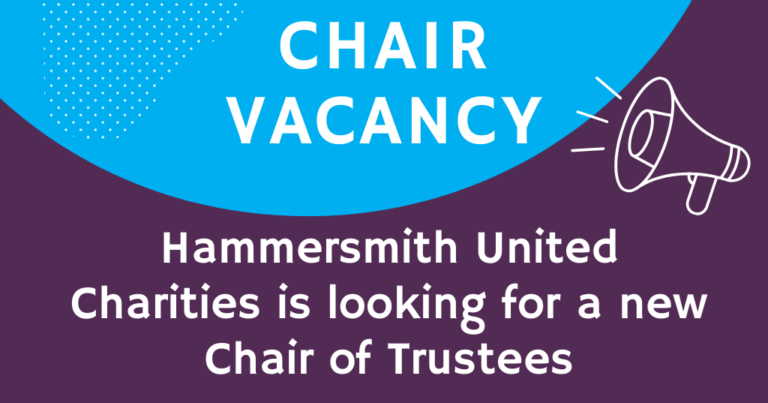
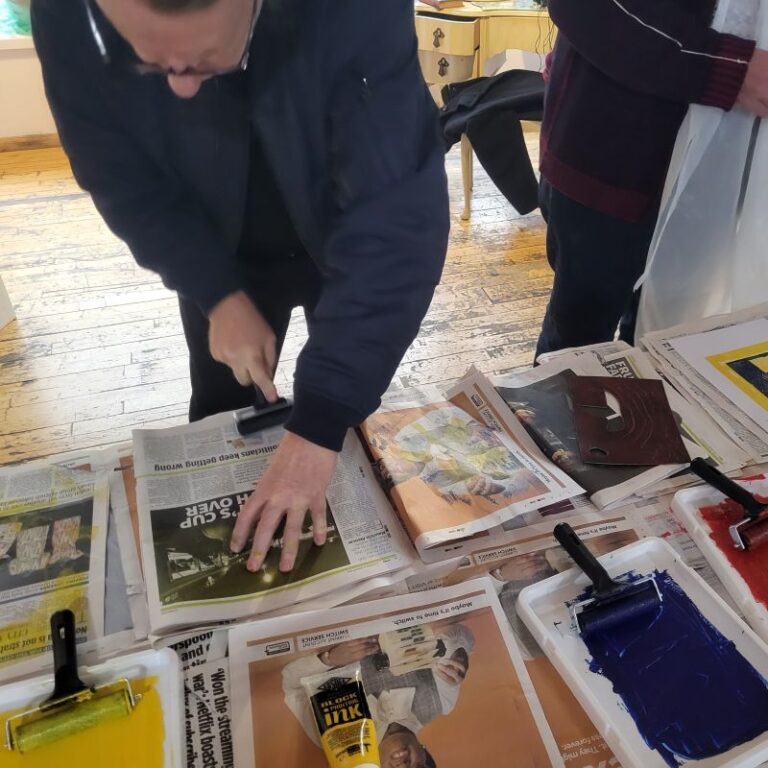
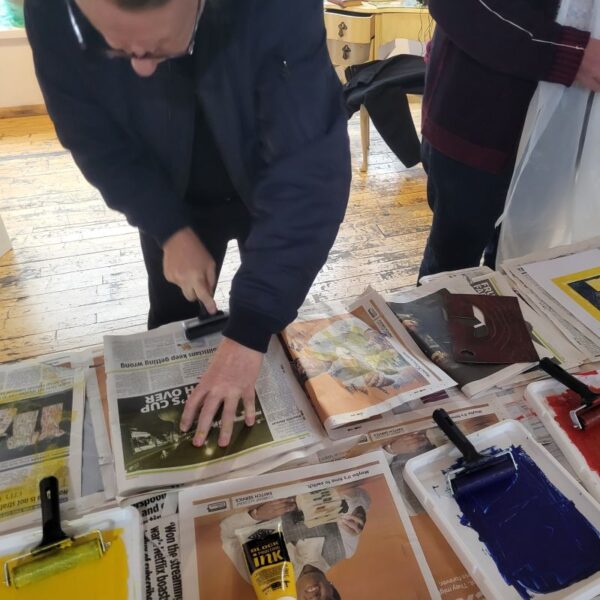 The REACTIVATE programme
The REACTIVATE programme